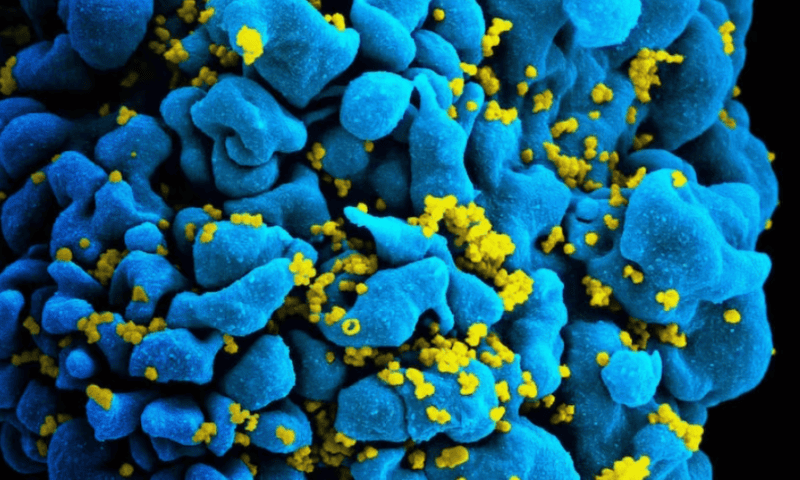Antiretroviral therapy, or ART, has made it possible for HIV-positive people to live just as long as those without the virus. But though their lifespans may be equal, healthspans are another matter: People with HIV start experiencing chronic health problems, like liver and heart disease, an average of 16 years earlier than their HIV-negative peers.
Researchers have linked this gap to ongoing inflammation, which persists even when ART has suppressed the virus to undetectable levels. Now, new findings from researchers at the University of Montreal Hospital Research Centre suggest that a protein called gp120 might be a key culprit. They concluded that there is a case for using the gp120-inhibiting ART drug fostemsavir—marketed as Rukobia by GSK’s subsidiary ViiV—beyond its indication for patients with multi-drug resistant HIV.
Gp120 is found on the outer surface of HIV, which uses it to infect immune cells. The new study shows its presence may also contribute to chronic inflammation as well as mild heart disease and immune dysfunction. When the researchers measured gp120 levels in the plasma of 347 male and 39 female patients with HIV, all of whom had an undetectable viral load, they found that it was elevated in a third of them. Those patients were more likely to also have higher levels of inflammatory cytokines and low-grade coronary artery disease.
“We’re showing that [gp120] acts as a toxin and is associated [with] chronic inflammation leading to comorbidities,” study lead Andrés Finzi, Ph.D., said in a press release.
Given that fostemsavir works by inhibiting gp120, the researchers conducted studies on HIV-infected cells to see if it could reduce biomarkers related to chronic inflammation. The results were positive enough to convince three Canadian health organizations, including the Canadian Institutes of Health Research, to fund a two-year clinical trial to see if the drug could stave off inflammation-linked comorbidities in patients when added to their existing ART treatments.
“If our trial proves to be conclusive, there would be a paradigm shift in current treatment,” Madeleine Durand, M.D., a senior author of the study and scientist at the University of Montreal research center, said in the press release. Personalizing ART regimens to add fostemsavir in patients with elevated gp120 levels “could relieve the burden of their comorbidities and improve their quality of life,” she added. The trial will start in 2024 and will measure the progression of atherosclerosis along with changes in frailty and cognition, the press release said. It will include around 200 people; the researchers aim for half of them to be women.

